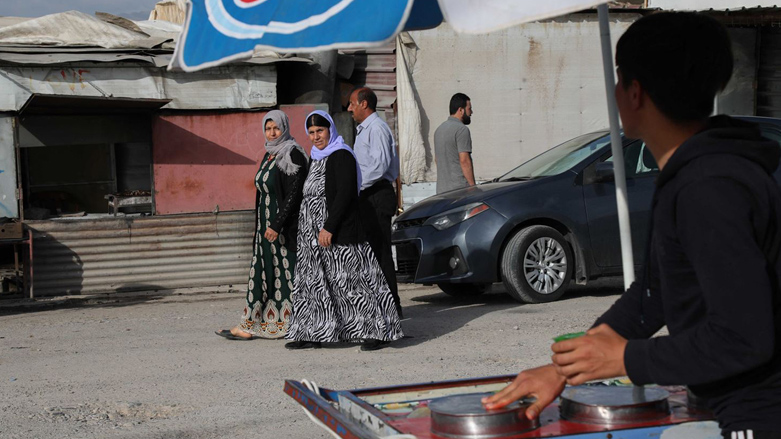Over 185 Yezidi IDPs return to Sinjar, says Iraq’s migration ministry

ERBIL (Kurdistan 24) – The Iraqi Ministry of Displacement and Migration announced the return of more than 185 previously displaced Yezidis to Sinjar as part of efforts to “end” displacement in the country.
The 189 Yezidis were previously hosted at displacement camps of the Kurdistan Region’s Duhok province, where thousands of members of the religious community still stay, the Ministry announced.
The Region is still hosting over 116,000 displaced families, including Iraqis who were forced to flee their places of origin as a result of the fight against ISIS. Over 60,000 Yezidi families are still residing in Duhok camps, according to official figures.
The new batch of returnees comes as the Yezidi-majority town in Nineveh province still struggles with a plethora of security, administrative, and public service issues. These issues have been exacerbated by the fight against ISIS, which had committed what the United Nations has recognized as “genocide” against the minority group in Aug. 2014.
The presence of militia forces, lack of reconstruction, and compensation funds have been cited by locals as well as international humanitarian organizations for the sluggish return of displaced Yezidis.
The Iraqi government has closed down all the displaced camps within its jurisdiction. The international NGOs have voiced concerns regarding the forced return of the displaced population, fearing such a move would exacerbate the vulnerable community’s conditions.
In order to normalize the administrative and security situation in the district, Baghdad and Erbil in September 2020 inked a deal, dubbed the Sinjar Agreement, entailing the transfer of local authority to the Yezidi population.
Since ever, the agreement’s implementation has been hampered by the militia forces, among other factors, according to informed sources.
The Kurdistan Regional Government (KRG) has called on the Iraqi authorities on several occasions to ramp up efforts to work towards implementing the deal, which will pave the way for a “voluntary and dignified return” of the population, according to Kurdish officials.
